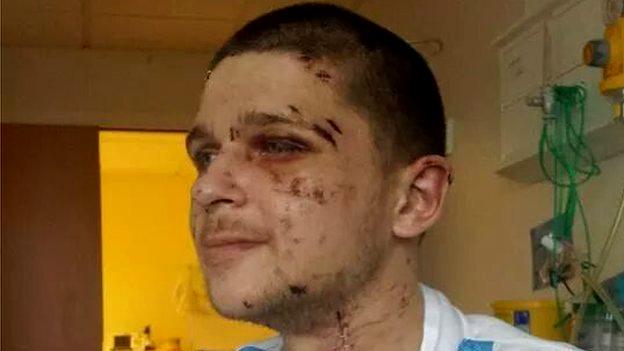Male domestic violence deaths become focus in Cornwall
- Published
One of the only male-only refuges nationally was introduced in Cornwall just over a year ago
Male domestic violence victims are being urged to come forward and report their suffering in spite of the "stigma" surrounding their plight.
Nationally, the number of women killed through domestic violence is more than double that of men.
But in Cornwall men made up four out of the five most recent victims.
Authorities there said they have been working to tackle the issue after a review, external said there could be a "chink in the chain of support for males".
Nationwide, the majority of fatal domestic abuse cases are killings by current or former partners, including heterosexual and homosexual couples, but the figures also include family members such as siblings and parents - in accordance with the government's definition of domestic abuse, external.
Read more on this story and other news from Cornwall on our Local Live pages
One of the few male-only refuges nationally was introduced in Cornwall just over a year ago, in a secret location.
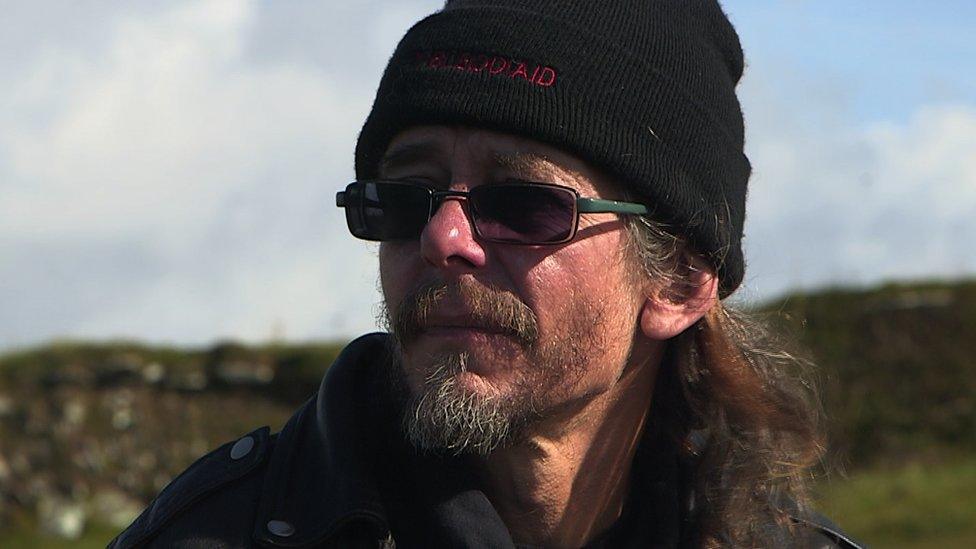
Peter Clinch said it was "infuriating" that he could not have done more to stop the killing of his brother
Alan Clinch, 49, was stabbed to death by his wife with a pair of scissors after they argued about cleaning in Liskeard in 2012.
His older brother Peter Clinch said it "couldn't have been more shocking" and the case was "absolutely hellish".
"You think 'I should have done something' but of course if you didn't know, what could you do? It's shocking, it's infuriating," he said.
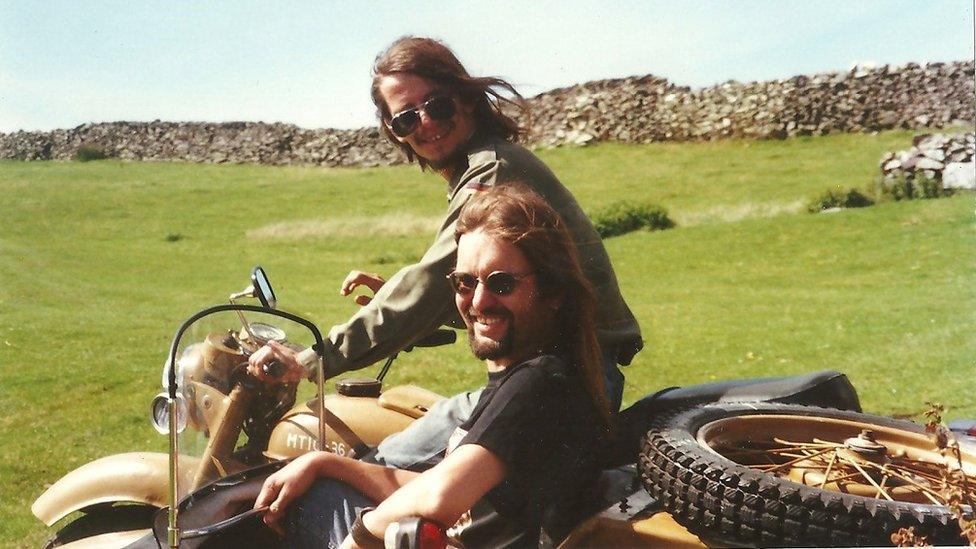
Peter Clinch (behind) and his brother Alan grew up with a shared love of motorbikes
A review into Mr Clinch's death published last year recommended the Safer Cornwall Partnership, a group of statutory agencies, raise public and professional awareness of male victimisation.
It found victims were "still reluctant to tell" and professionals "still reluctant to ask".
Michelle Davies, domestic abuse strategy manager for Safer Cornwall, said it was "difficult to pinpoint" why more men than women have died in domestic situations in Cornwall over the past five years.
"What I'm nervous of is speculation," she said.
She added: "What we can say is we have fantastic services available in Cornwall for female victims and have had for many years.
"As a result we could hypothesise that female victims of domestic abuse, because of our response, because we recognise females as victims, our responses are at a different standard than previously for male victims," she said.
Domestic violence in the past five years:
190
people were killed on average each year in England and Wales - 60 were men
-
109 people were killed by partners in England and Wales on average - 20 were men
-
18 percent of men and 31 percent of women in England and Wales have experienced domestic abuse in adulthood in total
-
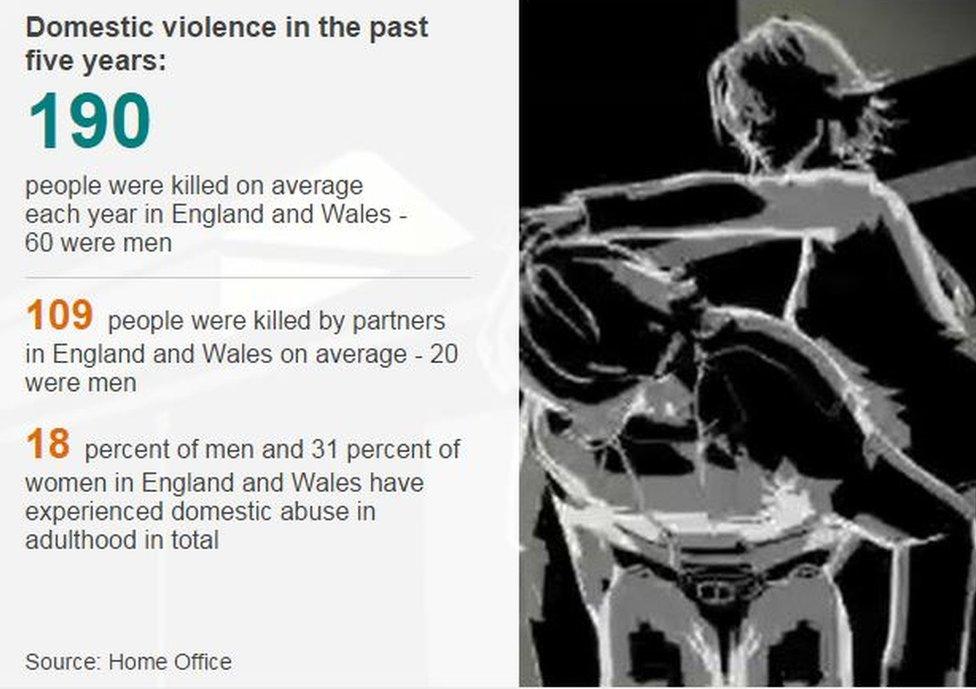
Domestic violence graphic
"We've done an awful lot of work following the reviews of the fatalities that recognise that we need to be better at promoting services' availability to male victims and increasing public awareness that men can be victims too."
Mark, not his real name, spent several months in Cornwall's male-only refuge after escaping a violent relationship that left him hospitalised several times.
'Swallow your pride'
"I was totally isolated and totally under her control," he said.
"One day she attacked me outside Tesco's and people stood there with their phones out videoing it... I knew from there on that this is how it's going to be until she either kills me or I kill myself.
"In my family I was always told you never hit a woman... because I had never seen someone as violent as that, it didn't occur to me to hit back."
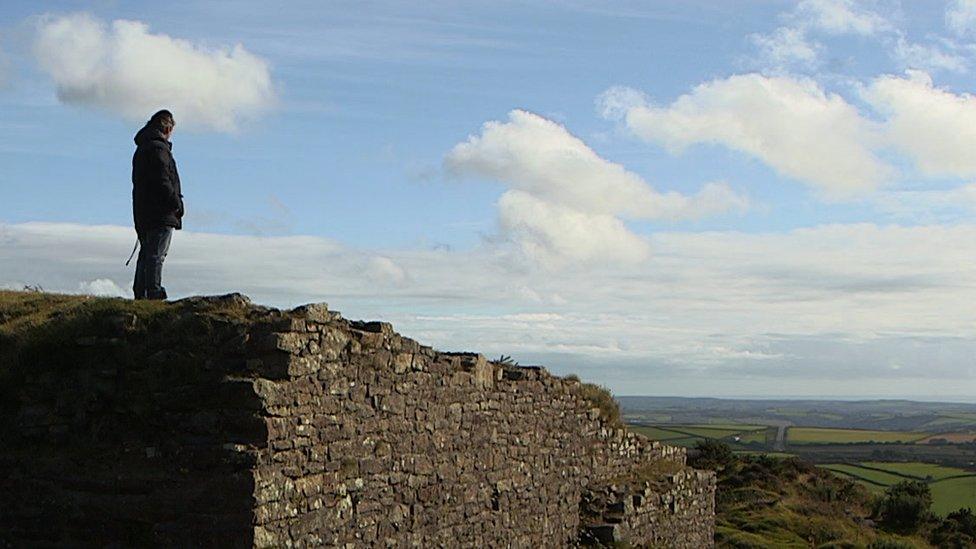
Mark said moving to Cornwall's male-only refuge saved him from a "toxic" relationship
Sue McDermott from the refuge said staff came into contact with about 80 men experiencing domestic violence in its first year, and housed 11 men in desperate situations from in and out of the county, with many more applying.
"What we try to explain to professionals in the field is that it's not the size of the man that means they couldn't defend themselves; often they've got values which means they won't hit back".
Sue said she believed society needs to "get better at talking about the issue", whether this means a friend suspecting a problem or involves professionals like a GP.
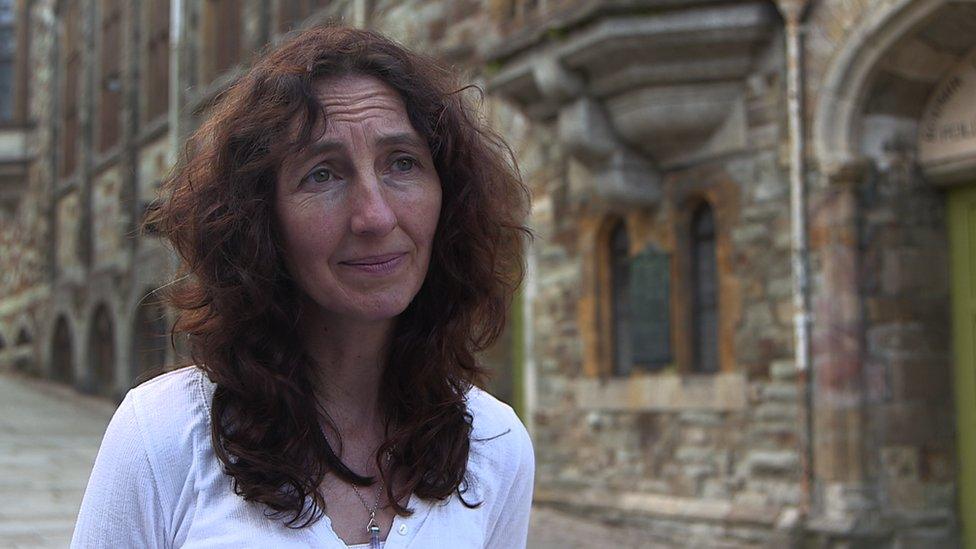
Sue McDermott said men still do not report domestic violence as much as women because of the stigma
Mr Clinch said: "Men feel embarrassed - ashamed that they've been driven out the home by the wife or partner. If they're going into a refuge where it's mixed, everybody knows the situation and it makes it harder for them."
He advised other victims: "Either swallow your pride and report it or get the hell out before you become another statistic."
Watch BBC Inside Out on BBC One in the South West at 19:30 BST for more on this story.
- Published21 January 2016
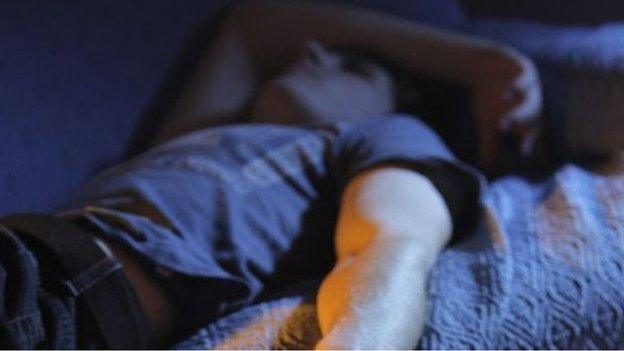
- Published29 December 2015
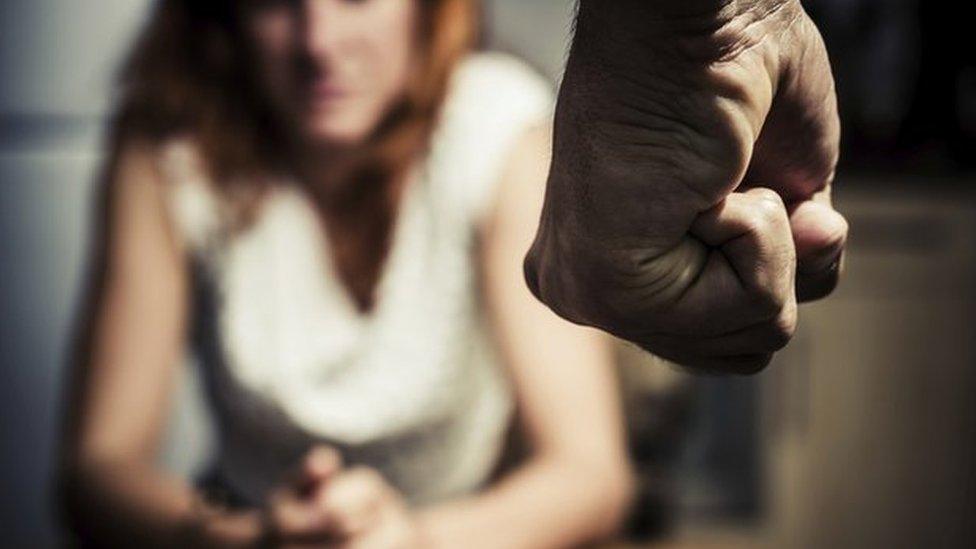
- Published15 December 2015
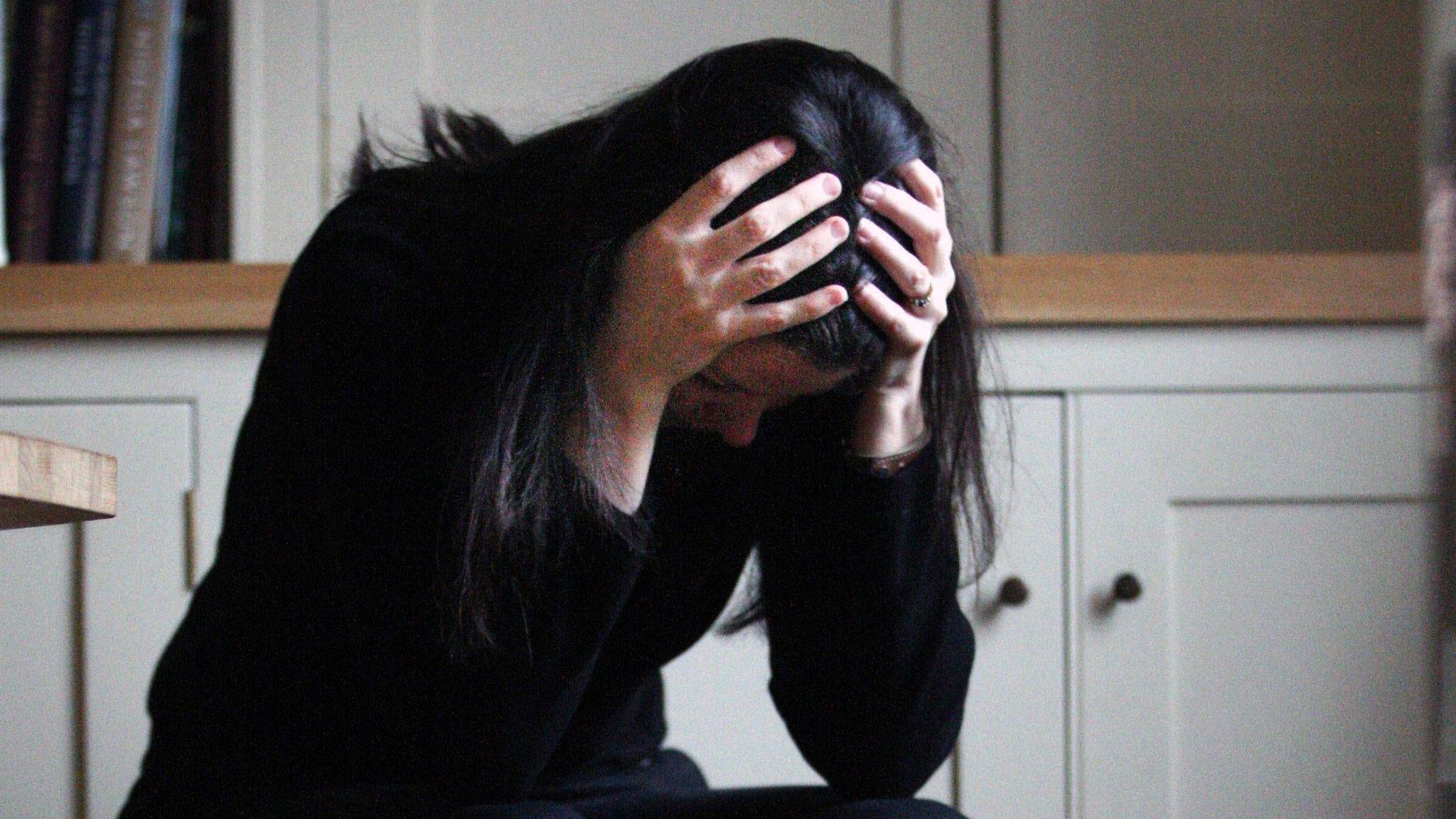
- Published14 December 2015
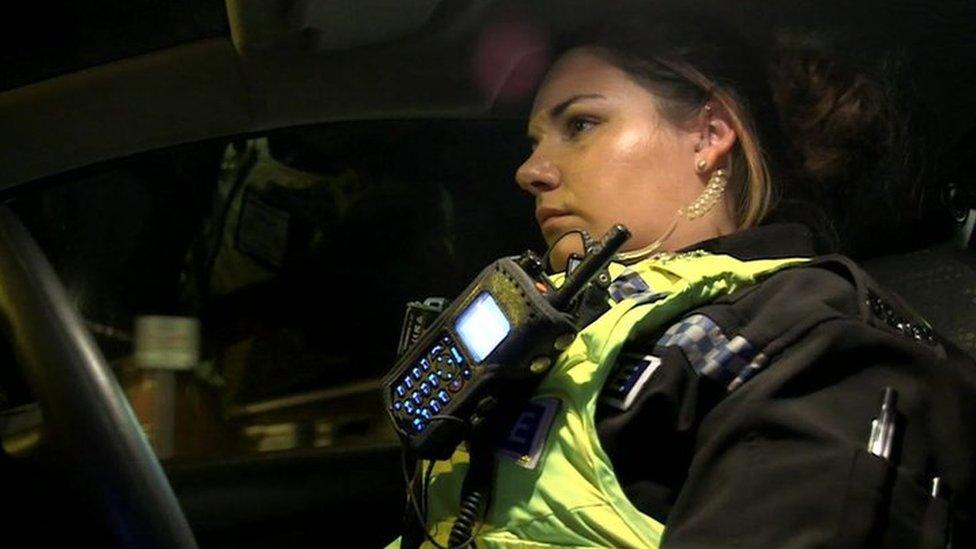
- Published5 December 2014
